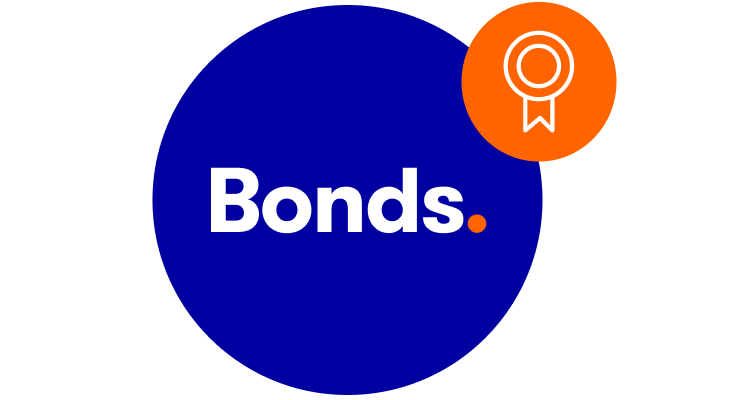Bonds hub
What are corporate bonds?

Corporate bonds are loans that companies take out via financial markets.
The buyer of the bond is effectively lending their money to a company for a fixed period of time.
While bond buyers wait for their capital to be returned, they are paid interest, known as the coupon. Coupons are typically paid twice a year.
Providing the company remains solvent, the amount borrowed, known as the principal, is returned to the investor at a specified time in the future. This is known as the redemption date, or maturity date.
Unlike shares in a company, bondholders do not own part of a company.
Types of corporate bonds
There are three categories:
- short-term bonds which have maturities up to five years
- medium-term bonds which have maturities between five and 12 years
- long-term bonds which have maturities greater than 12 years.
Longer-dated bonds typically yield more as investors demand extra compensation for locking up their money for a longer period.
What are the tax rules for corporate bonds
Capital gains tax
Most corporate bonds bought directly and issued in pounds, so long as they are deemed “qualifying corporate bonds” by HMRC and are held outside an ISA, are free from capital gains tax or CGT.
This means someone buying and selling a bond, and making money on the trade, will not pay tax on their profits.
Income tax
Unless bonds are held in an investment ISA or other tax-free wrapper products, investors still have to pay income tax on any interest they earn.
If in doubt about the tax implications of bond ownership, seek out a qualified financial adviser.
The risks of investing in corporate bonds
The biggest risk when investing in corporate bonds, either directly or with a fund, is that the borrower is unable to pay the interest on a loan or repay the principle.
When this happens, it is called a default. Defaults are more common when economic growth slows, particularly for higher risk “junk” bonds that may not have a large, financially secure company behind them.
The other key risk is that the price of the bond falls, leaving an investor nursing a capital loss if they want to sell their bond before maturity.
Example
In 2022, bond prices fell at the same time as shares because of an unusual occurrence where interest rates increased to control inflation despite a slowdown in economic growth.
Bonds and credit ratings
Rating agencies, such as Moody’s, Standard & Poor’s or Fitch provide independent analysis of how creditworthy a company is, meaning how likely it is to pay back its loan on time. This is known as the credit rating.
Scores range from Aaa (Moody’s) and AAA (S&P) to C (Moody’s) and D (S&P).
- Investment grade bonds are deemed the safest and have ratings from Baa or BBB and upwards
- “speculative” or “junk” bonds have credit ratings of Ba or BB and below.
Example
A company such as Apple gets to borrow money at low interest rates because it is considered extremely likely to pay its bondholders, but a start-up firm will have to pay higher interest rates to account for the risk that it may not be financially stable.
UK corporate bonds versus foreign corporate bonds
One key consideration when buying bonds is the currency risk. If a UK investor owns bonds that are priced in euros or US dollars and pays income in those currencies, then their actual return in pounds is affected by exchange rate fluctuations.
To avoid this, some bond funds specifically invest in bonds issued in pounds. In addition, ‘go-anywhere’ bond funds, known as strategic bond funds, may use financial markets to 'hedge' the currency risk, meaning that their returns are not affected by exchange rates.
This is also a common approach for emerging market bond funds, where currencies can be extremely volatile. Emerging markets sometimes issue bonds in 'hard' currency, such as US dollars, or their local currency.
What affects the price and performance of corporate bonds?
Bonds, like stocks and shares, are traded by investors. Bond prices and bond yields have an inverse relationship, so if bond prices go down then yields go up, and vice versa.
The big factor that impacts bond prices is interest rates. This risk-free borrowing rate is set by each country’s central bank. When rates go up, it means that investors can get a better deal from newly issued bonds. They may choose to sell old bonds and lock in a better rate by buying a new bond.
What happens when interest rates fall
When rates go down, this has the opposite effect. The old bonds that have higher interest rates become relatively more valuable.
Longer maturity bonds are more sensitive to interest rate changes, and therefore their prices rise more when interest rates fall, but their prices also drop more when rates rise. The sensitivity to interest rates is known as duration.
Another factor to watch is economic growth and the possibility that companies cannot pay back the interest on their bonds.
Example
There is very little risk that safe governments will stop paying interest, and only a slightly higher chance that blue-chip firms will default on their debt, even during a recession. The same is not true for the riskier end of the bond market, such as for high yield or junk bonds.
How to invest in corporate bonds
Direct investments in corporate bonds are generally reserved for large investors, as they are often broken down into large chunks, known as denominations, of £100,000.
However, DIY Investors can buy some corporate bonds directly, the interactive investor platform has a range on offer, such as those issued by Ladbrokes, the Co-Op, and Aviva, which are priced at around £100.
Sometimes companies market bonds directly to consumers, known as retail bonds and mini bonds. These are typically high risk and therefore offer high yields. Be very careful here – industry regulator the Financial Conduct Authority has banned promotions of what it calls speculative mini bonds to retail investors.
Why invest in corporate bonds?
Corporate bonds are important to investors because they provide a fixed income from the coupon payments, with a yield that will likely be higher than what they can achieve on cash, whether in a savings account or elsewhere.
Generating a steady return is important for investors wanting to build a balanced portfolio. The other key benefit of corporate bonds, particularly the safest ones, is that because they are viewed as lower risk investments than shares, they tend to increase in value when events rock the stock market and worry investors. This provides a natural hedge in a diversified portfolio.
Buy bonds with ii
Active and passive bond funds, including exchange-traded funds (ETFs), are available to buy on the interactive investor platform.
interactive investor’s Super 60 list of rated funds and investment trusts has both active and passive bond fund options, but always do your own research.
Corporate bonds FAQs
Learn more about bonds
Learn how to make the most out of your investments with our useful guides.
How to buy bonds
You can trade a number of bonds and gilts via your online ii account. For any that aren't available online, you can deal over the phone by calling us on 0345 607 6001.

The value of your investments may go down as well as up. You may not get back all the money that you invest. If you are unsure about the suitability of an investment product or service, you should seek advice from an authorised financial advisor.